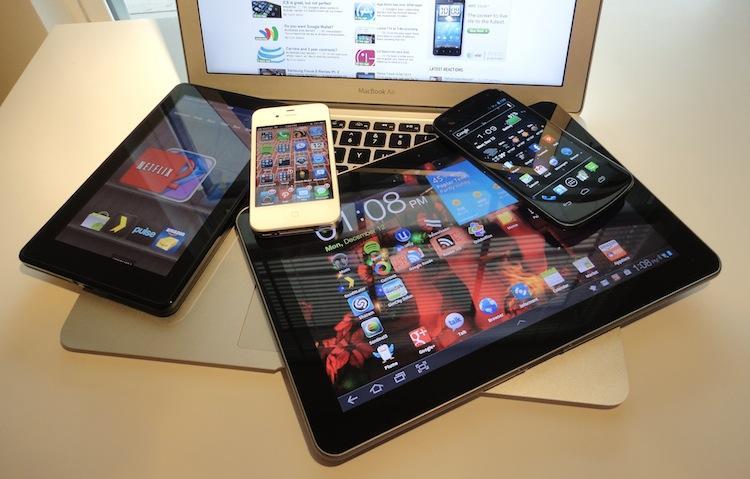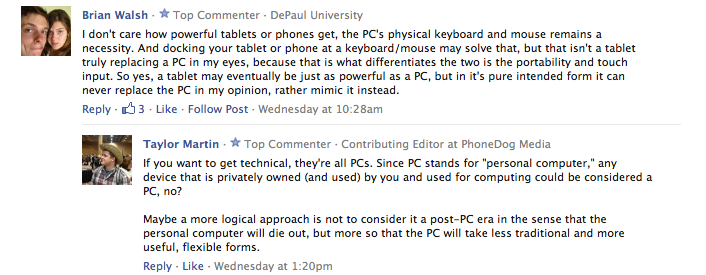
With the introduction of both tablets and smartphones, people have started to question whether they really need a home computer anymore. What really set this into motion was Steve Jobs' infamous belief that we have entered the post-PC era. As you can imagine, PC fans aren't taking this too lightly.
Just this Wednesday, I wrote an article about Ubuntu for Android. The idea is that any dual-core phone or tablet is capable of running both a full version of Ubuntu and Android simultaneously, and the two experiences are totally integrated, down to the wireless connections and file systems. When out and about, you can easily use your phone as the Android device it was meant to be, but come home and hook it up to a monitor, keyboard and mouse and you have a full-fledged desktop version of Ubuntu.
I appropriately titled my article We are one step closer to the end of the PC era. A couple of commenters agreed and recognized the beauty of a pocket-sized device doubling as a powerful, dual-OS machine. This could be exactly what I have been searching for, for several years now. Pair Ubuntu for Android with the ASUS Transformer Prime and you could have yourself a pretty sweet little machine.
The majority of the comments, however, echoed the same thought: "The traditional PC isn't going anywhere." I'm convinced that before 90 percent of the readers made it well into the article, they got the impression that I had summoned the death of the home computer as we know it.
That's not going to happen. Not for a while, at least. And that wasn't my point at all.

One commenter, Brian Walsh, made a very good point. Since you need to attach peripherals to a tablet or smartphone to make them as useful as a PC, he argued that they aren't exactly replacing the age-old personal computer, only mimicking it. (You can find his exact words in the screen capture above.)
Only then did I realize that people were likely misconstruing my words over anything else. I was not talking about the death of the PC, but rather about the decline in its importance. Seven years ago, I sat by my computer all the time. If I wanted to browse the Internet, that was my only connection to the outside world. Now I have that very connection in my hand, from my couch, etc. I can access the Internet from virtually anywhere in the world, and I can perform various levels of "computing" from a plethora of devices.
An article by Sarah Perez on TechCrunch yesterday only gives credence to that idea. The article is titled Here’s What “Post-PC” Looks Like: Over Half Of Info Workers Use 3 Or More Devices. Without divulging the meat of the article, the title says it all and applies to more than just IT workers. Everybody uses multiple devices. I don't go through a single day without using at least four different devices – MacBook Air, Galaxy Tab, iPhone and Galaxy Nexus. Some days I use far more than that.
Still, the MacBook is where I do the majority of my work. It's still the staple in my daily life because my mobile devices can't quite get the job done themselves. But that's what I'm looking for – a device that can do it all. And Ubuntu for Android is the perfect solution.
So no, I won't be ditching my computers when the post-PC era is in full swing. They're not all going to magically stop working. It's not some armageddon for personal computers. And it's not going to happen overnight. Mobile devices, desktops and laptops are converging. The end of the PC era is a transformational phase, where the personal computer as we know it begins to take different shapes and sizes and better caters to the needs of users. For me, a phone that works as the brain of my PC is a fantastic idea. That, obviously, will not work for a hardcore PC gamer.
I think we all can agree that smartphones have taken quite a load off of our home PCs. We may not be in the post-PC era just yet, but it's looming overhead. While many of you will continue to deny its existence, I will welcome the day that I can do everything with a single device with open arms.